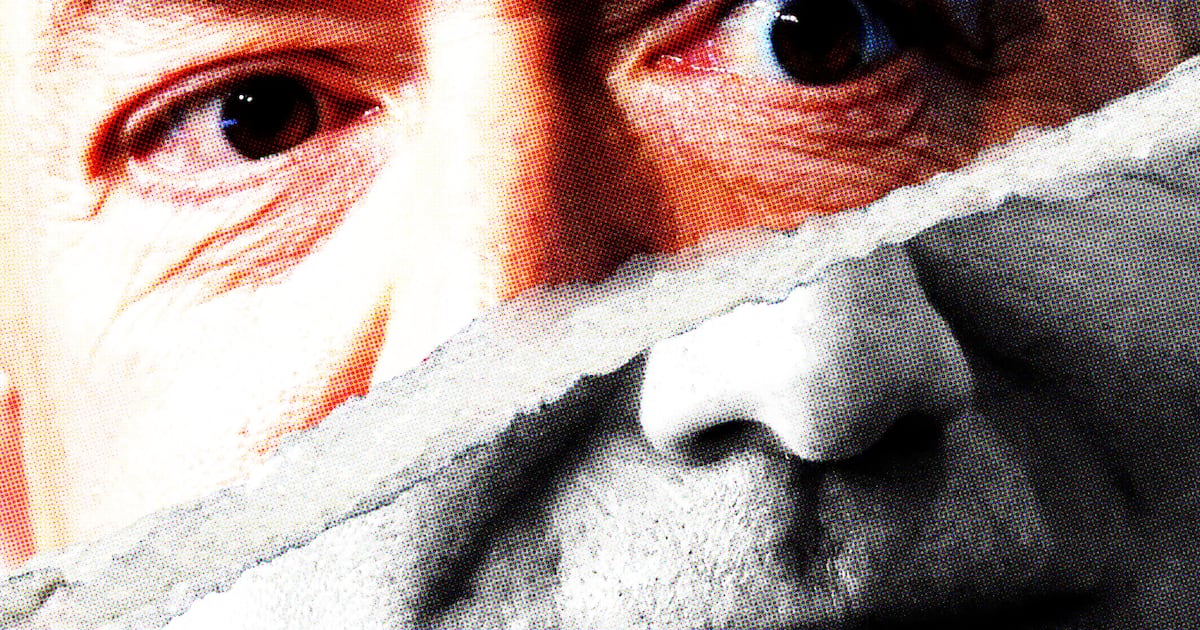
After the Clintons’ political machine was brought down by a gang of earnest teens and Democratic outsiders, many Americans breathed a sigh of relief. Then, the Kennedys were socked in the jaw when Caroline was deemed, in humiliatingly public fashion, not ready for prime time. The age of dynastic politics was over. But then we remember that Caroline was spurned by David Paterson, himself the heir to a Harlem political dynasty. And Paterson will get his comeuppance next year, when he is defeated in a primary by... Andrew Cuomo, the son of former New York governor Mario.
For Republicans, there really is no better candidate for president than Jeb Bush.
All of this is to say that America's political dynasties haven't really gone away. That very much includes the Bush family. George W. Bush's profound unpopularity was supposed to mean that his brother Jeb would have to put his national political ambitions on hold, if not in deep freeze. But one increasingly gets the sense that given the depressingly barren state of the Republican bench, it seems possible—remotely possible, to be sure, but possible—that the Republican ticket in 2012 could include a Bush. And maybe even a Cheney.
ADVERTISEMENT
Most Americans, including most Republicans, want Dick Cheney to fade away into sepia-toned photographs. But Cheney has been a near-constant presence on the Sunday-morning and cable-news circuits, usually making ominous predictions about a terrorist apocalypse. To some extent, this is a simple matter of Cheney defending his record. The former vice president has decided to stake his reputation on his maximalist view of presidential power and his unbridled enthusiasm for coercive interrogation, both views that are very much in danger of being badly discredited.
Yet is there more to it than that? Cheney has, after all, gone beyond questions of national security to champion antitax protesters and to condemn Barack Obama's spending increases, positions that resonate very strongly with the shrinking Republican base. And Cheney is no stranger to political ambition. He seriously considered running for president in 1996 on the strength of his successful tenure as secretary of Defense under the first President Bush, but his fundraising didn’t pass muster. In 2000, as head of George W. Bush's vice presidential search committee, he immodestly concluded that he was the best man for the job, raising the question of what might have been had Cheney deferred in favor of a slightly less domineering candidate. Could it be that Cheney, who has sound-enough political instincts to realize that the GOP is in dangerously weak shape, is finally gunning for the top job? If not, would he consider "guiding" another young pup from the office of the vice president? Right now this sounds like a surreal nightmare, one that would lead the five boroughs of New York and large swaths of Southern California to saw themselves off from the American mainland and try their luck as minor outlying islands. But stranger things have happened.
A far likelier scenario is that we'll see another Bush at the top of the ticket, this time the younger Bush who was meant to win the White House, Jeb of Florida. Before turning to Jeb's many strengths, it's worth thinking through some of the Republican alternatives.
Over the weekend, President Obama named Utah Gov. Jon Huntsman, a telegenic Republican moderate, as his pick for ambassador to China, removing one possible 2012 challenger from the fray. Gov. Mark Sanford of South Carolina, a straight-shooting right-winger I find it impossible to dislike, is loved by conservative activists, but not always by his fellow South Carolinians. Gov. Sarah Palin of Alaska has, for a variety of reasons, not all of them entirely fair, become a national punchline. My guess is that Republican primary voters won’t bite, just as Iowa Democrats turned against Howard Dean at the last possible moment. Gov. Tim Pawlenty of Minnesota is lacking in star wattage. Because Gov. Bobby Jindal of Louisiana is not insane, he's keeping his powder dry until 2016, and the same might even be true of former Massachusetts Gov. Mitt Romney. As for Mike Huckabee, who has become a scourge of bailout capitalism, his failure to make headway outside of his evangelical base suggests that he's fundamentally a niche candidate.
The missing candidate, then, is Jeb Bush, a successful two-term governor of a big swing state with sterling conservative credentials, a record of appealing to Latino voters, and the raw brainpower and rhetorical skill to match Barack Obama.
While it's common to dismiss Jeb as the heir to a tarnished political dynasty, it's worth remembering that dynasties emerge for a reason. While any number of sane Republicans will bow out of the 2012 race in order to maintain domestic peace and their bank accounts, political heirs tend to have a sense of duty that transcends such considerations. A few months back, Jeb Bush bowed out of Florida's 2010 U.S. Senate race, but only after gently suggesting that he might jump in the fray. Now that Gov. Charlie Crist is running for the seat, many Florida conservatives believe that Jeb is conspiring against him. I doubt it. With Obama's popularity in the stratosphere, with his family's legacy under threat, and with private life proving more boring than expected, Jeb has bigger fish to fry.
I'll also note that there's a reason Bushes have succeeded where other Republicans have failed. The family, and Jeb Bush in particular, manages to reconcile many of the tensions and contradictions that have rankled the party. For example, the GOP is anti-elitist. Yet Mike Huckabee, an authentic by-his-bootstraps populist, was dismissed by the party's actual elite as a country yokel. Republicans are increasingly a Southern and evangelical party, yet they do best when they appeal to non-Southern suburbanites and Catholics. The Bush family, with its Yankee and Ivy League origins and its oil-patch mythology, is both Northern and Western. Jeb himself is a convert to Catholicism, who speaks fluent Spanish and is very much a creature of the Sun Belt. It helps that he is, as even his rivals will acknowledge, dazzlingly intelligent. He does have skeletons in his closet, including supposed ties to anti-Castro extremists. But for Republicans there really is no better candidate.
Reihan Salam is a fellow at the New America Foundation and the co-author of Grand New Party.





